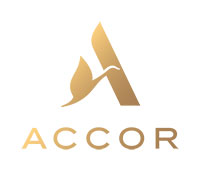
Six Senses leads the way in responsible tourism (Maldives)
|
 |
Six Senses leads the way in responsible tourism (Maldives)
|
Category: Asia Pacific - Maldives
This is a press release selected by our editorial committee and published online for free on 2010-04-30
Maldives President acclaims pioneering environmental initiatives
How does luxury equate with sustainability? Is it possible to improve the tourist industry’s carbon footprint? What steps can be taken to reduce emissions whilst maintaining profitability? How can high-end tourism survive in a low-carbon world?
These and other pressing questions will be addressed by world leading industry consultants, environmentalists, politicians and tourist bodies at the second Six Senses Eco Symposium to be held at Soneva Fushi in the Maldives from 7th-10th October 2010.
Leading figures to attend include Maldivian President Nasheed and Jonathan Porritt
The main objective of the Eco Symposium is to bring together travel and tourism industry leaders and to inspire them to take on responsible business practices and adapt to climate change. The guest speaker panel will consist of industry consultants, environmentalists, international policy makers, and visionaries and will be lead by the President of the Maldives, Mr. Mohamed Nasheed who will deliver a keynote speech outlining the country’s commitment to carbon neutrality by 2020 and the role of tourism in delivering that goal. Other speakers include Jonathan Porritt, a leading UK environmentalist, Mark Lynas, President Nasheed’s advisor on climate change, James Cameron of the carbon-trading business Climate Change Capital Professor Geoffrey Lipman of UNWTO and Solar Century CEO Jeremy Leggett.
“We want to present practical solutions that make both business and environmental sense. The tourism industry must realise that reconciling its business with carbon neutrality is a matter of commercial as well as planetary survival,” said Sonu Shivdasani.
Soneva Fushi leads the way to decarbonising tourism
Tourism is such a large industry, with major impacts on our life and the environment. It is essential that the industry develops and operates in a sustainable manner. Six Senses Resorts & Spas was founded by Eva & Sonu Shivdasani in 1995. Since the beginning Six Senses has worked very hard to set the standard in the hospitality industry both in terms of luxury and environmental responsibility. Soneva Fushi, the venue, is well on its way to become a Carbon Zero resort, making it the perfect venue to discuss responsible business.
Soneva Fushi contributes a carbon tax for all guests, hosts and supplies flights which is invested in a wind energy project in Southern India. Not only does this project provide clean energy, but the revenue generated will be redirected into the production of further wind turbines and local community projects.
Presidential praise for Soneva Fushi
In a recent article in The Economist, President Nasheed of The Maldives outlined his government’s 10 year carbon neautral strategy whilst singling out Soneva Fushi for its ground-breaking green initiatives:
“Soneva Fushi… will become the world’s first carbon-neutral tourist resort. It will host a symposium to demonstrate how, through a combination of technical wizardry and commonsense solutions, it has slashed carbon emissions, putting to bed the myth that luxury necessarily equates with environmental degradation.”
Since being elected to office in 2008, Nasheed has become an internationally-renowned advocate for environmental protection, especially given the Maldives’ vulnerability in the face of rising sea levels. “The Maldives is on the climate change front line,” said Nasheed. “But what happens to the Maldives today happens to the rest of the world tomorrow. We need to help steer the world towards the carbon neutral path and the Maldives aims to set a global example by embracing low-carbon development.”
The Six Senses Eco Symposium agenda
Speakers will present practical solutions for discussion and debate on the following topics:
Day 1 Surviving Climate Change & Profitable Climate Solutions
* An opportunity to discuss the severe impact climate change will have on the hospitality industry and the changes required for improving carbon footprints and the bottom line
Day 2 The Living Building Challenge
* How resorts/hotels can be designed with minimal carbon footprint and maximum comfort.
Day 3 Improving Transportation Footprint
· The hospitality industry relies on flying. How can we ensure that the carbon footprint is improved yet still allow people to travel?
The 2010 Symposium is a follow up to the 2008 Eco Symposium - Climate for Change (www.sixsenses.com/Environment/eco-symposium.php)
Further information on the speakers and subjects will be available in July 2010.
|
|







